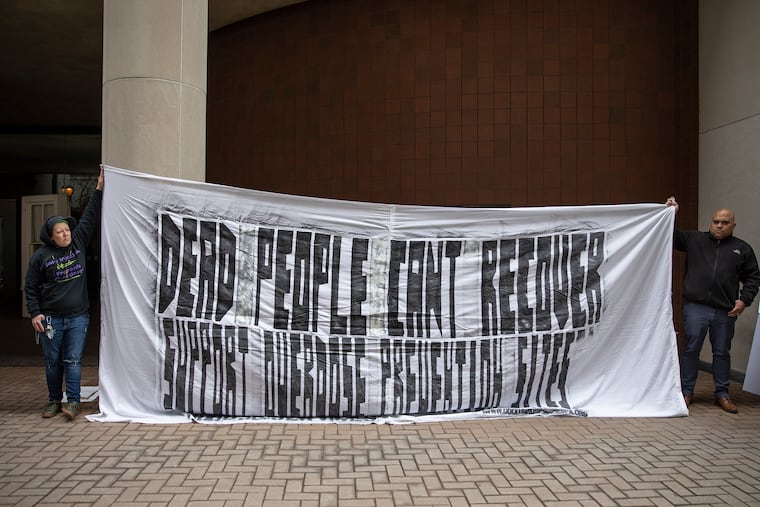Stopping illegal safe injection sites is exactly what the U.S. attorney is supposed to do | Christine Flowers
A safe injection site, no matter the intentions behind it, would clearly violate that law.

When the U.S. attorney for the Eastern District of Pennsylvania announced on Wednesday that the Justice Department was filing a lawsuit aimed at stopping Philadelphia’s plan to open a safe injection site, I took a moment to think of my handsome, sensitive, guitar-playing, track and field champion brother Jonathan. He died of an overdose in 1998.
I also cheered for U.S. Attorney William M. McSwain, who refused to let the political correctness of our times stop him from doing the right thing. I am glad to see someone with power speaking the truth, a rare occurrence in these days of controversial yearbook photos (see: Virginia Gov. Ralph Northam) and euphemisms about late-term abortion (see: New York Gov. Andrew Cuomo).
The truth that McSwain announced at Wednesday’s news conference was that these safe injection sites — which are in my opinion nothing more than glorified shooting galleries — violate the crack-house statute, a federal law from 1986 that makes it a crime to operate any place where drugs are used or sold.
Supporters of safe injection sites argue that the crack-house statute was designed to wipe out drug dens, not facilities aimed at improving public health. But according to that statute, it is illegal to ""knowingly open or maintain … [or] manage or control any place … for the purpose of unlawfully … using a controlled substance."
A safe injection site, no matter the intentions behind it, would clearly violate that law.
(I’d be remiss if I didn’t mention here that the federal response to the crack epidemic unfairly targeted people of color. As I argue in support of the law in this instance, I have to wonder where the supporters of safe injection sites were when black youths were dying in the 1990s? It can’t be a coincidence that we are only struggling to find a compassionate solution to this problem now that the victims are white.)
As an attorney, I’m proud of McSwain. Lawyers are supposed to defend the laws of this country. It is his job to tell the city and the mayor and the social justice advocates that the Supremacy Clause of the Constitution (signed, by the way, in this same historic city) means Philadelphia cannot write its own exception to federal drug laws.
On a personal level, McSwain’s comments resonated with me because he refused to buy in to the idea that safe injection sites are saving lives. I thought of my brother, and it made me angry to think that there are people in this city who are willing to let their own Jonathans continue to use drugs so that they don’t die in the short term while condemning them to years of addiction and empty promises.
The advocates of safe injection sites think it’s enough to keep addicted people alive by aiding and abetting their addiction with modern facilities, friendly faces and doses of overdosing reversal drug naloxone. It’s not enough. Instead of allowing people to continue to use drugs, we should be addressing the core reasons that many people become addicted to drugs, which include mental illness, more potent drugs on the street, a laissez-faire attitude to the legalization of pot, and the criminal and sinful malfeasance of Big Pharma.
The argument that at least we are keeping people who are addicted to drugs like heroin alive in the hope that they will one day see the light and agree to go into rehab is made of more straw than the Scarecrow from Oz. Living in addiction is not life. I know because I’ve watched it ruin the lives of people I love, a slow moving train to hell. The train won’t be stopped if you add fuel to its engine.
Outside of McSwain’s news conference, protesters were chanting, “Dead people can’t recover.”
I wish I had been there to tell them that neither do people who are given no reason to even try.